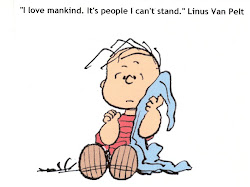Shove Me In
The Shallow Water Before I Get Too Deep. Did we actually need hard evidence
that we’ve turned into a celebrity-centric culture? Evidence abounds before our
eyes and other senses every day. It isn’t even fair to call it anecdotal; the
evidence is so prevalent and dominant.
But along
comes definitive, (apparently) data-supported evidence – from the grave no less!
Sociological researches at the University of South Carolina analyzed obituaries
published in the NY Times from the same randomly-selected days in the years
1900, 1925, 1950, 1975, and 2000. The researchers ranked the attention given to
the deaths of individuals in certain occupations in each year group. Obits of entertainers and athletes rose from
7th ranked in 1900 to 5th in 1925 to 3rd in
1950 and 1st in 1975 and 2000. This group accounted for 28 percent
of all published obits by the year 2000.
During this
same period the obits for prominent figures in manufacturing and business
dropped by half. Similarly, obits for religious figures fell from 4th
place in 1950 to last in rank in 2000. The researchers actually found no
published obits (within the 20 dates sampled) for a religious figure in 2000.
Now, there
could be some compounding factors involved, no doubt, and I’m not sure if the
SC researchers tried to account for factors such as the rise of a the
professional athlete and celebrity classes as major occupations in the latter
half of the 20th century. This could be coupled with a similar
decline in U.S. manufacturing jobs and those following a full-time religious
vocation. It would be interesting to delve into this further.
But I really
get a chuckle out of the scramble from sociologists and psychologists to
explain some facet of modern human behavior – in this case, celebrity worship. With
them it always boils down to evolution and something our cavemen relatives did,
or didn’t do. In this instance, their speculation on a survival-driven instinct
to pay attention to whatever the top-dog in the cave was up to. "Hey, look at Grog, he has his finger up nose. Me do same." So how many
cavemen exactly did they interview to reach their academic conclusions and
subsequent pontifications on this topic? I’ll bet it wasn’t a statistically
valid sample.
More direct
is an explanation by consulting psychologist James Houran quoted in a similar
Live Science article: "Celebrity worship, at its heart, seems to fill
something in a person's life," he said. "It gives them a sense of
identity, a sense of self. It feeds a psychological need.”
There was a time when most of us found that our
Christian faith and associated understandings filled that “something” in our
lives, not Justin Bieber, Lady Gaga, or Peyton Manning. It seems that our obits
simply reflect our preference for wading in the shallows.


1 comment:
Even churches focus on sports figures and entertainers these days
Post a Comment